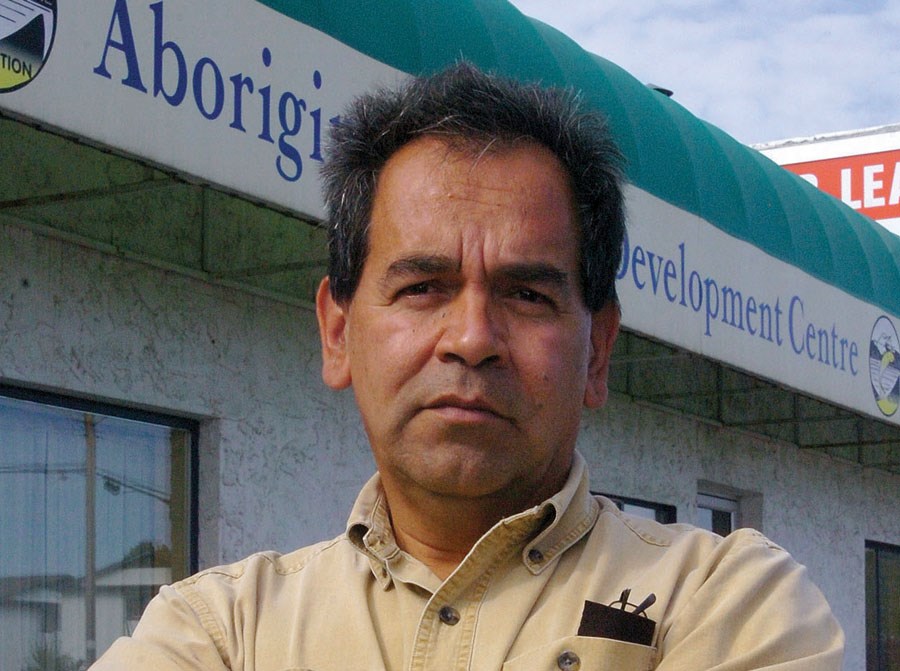When Vince Prince steps into his new role as chair of the College of New Caledonia's board,
he'll be taking the helm at a difficult time for the college, following eight years of deficits and weeks of public debate over how this year's $2.8 million was cut, seeing the suspension of its dental hygiene program, cuts to counselling and more than 30 staff layoffs.
Prince sees his role as the voice of the Board of Governors and, as was echoed by members at its Friday meeting, agreed they need to do a better job of communicating with the public.
But the community, too, should understand the difficult decisions the board faces.
"They have to put some faith that we are doing the best we can based on the situations that are in front of us," said Prince, who is a member of the current board and the executive director of the Aboriginal Business Development Centre.
"We're just people. We're making the best decisions that we can with the least amount of impact to students because ultimately that's who we're responsible to."
People should also understand how the board is meant to work - essentially appointed by the province to administer the budget.
"Overall people just seem to think we were in control of how much money we were getting," said Prince, who was voted in at Friday's Annual General Meeting and will replace Keith Playfair who was chair for six years. "When people asked me I said, 'I would much rather have the control here in Prince George than in Victoria."
But it was behind-the-scenes work with Victoria that ultimately saved the dental assisting program, which should be offered in September 2015 if the college's education council approves the updated course.
"It was a lot of relief," said Prince of the news Friday morning before the board's budget vote from the Ministry of Advanced Education that it would help fund the 46-year-old program if approved.
The exact extra dollar amount from the province is still to be determined, Prince said, after other details - like the new tuition and student fees - are settled.
"Because it'll be a brand new program for us, it won't fall under the old tuition schedule," he said, referring to the maximum two per cent tuition increase allowed by the province on current courses. "Even though there's a cap on existing tuition, we can set the tuition for that."
Does Prince think government needs to put more money into public education?
"Of course there does need to be, tremendously," he answered. "But you have to understand that there's a balance, right. It's how much do we raise taxes? how much do we impact industry?"
And Prince doesn't leave the responsibility at the province's door.
"Even though there's that potential from the government I think there's also a role of the board and chair to go and meet with industry specifically," he said.
"I think they need to step up a little bit more and I'm looking forward to having those conversations with some of the industry leaders and saying 'You need to spend some seats and you need to look at education of your employees and to spend some money in the community and on your people as well and you need to make that commitment outside of what government's doing."
Coming from a business background, Prince believes the college should operate like one.
"Yes we're delivering education, and yes we're primarily funded by the government but ultimately it's a business."
And he thinks its future looks promising.
"I see the growth coming back," said Prince, adding the dip in enrollment is understandable in times of low unemployment and may trade opportunities.
"We're working on a system in terms of the revamping of how we're going to run some of the administration. We're going to have some of these trades programs being delivered in each of the community," said Prince, who also pointed to the college's work to create a digital delivery model to access students outside the province and internationally. "We're going to rotate a lot of those programs so I think it's going to give an opportunity for some growth in a lot of the other programs."
The big thing, he said is keeping control in the community.
"We have people with strong voices (on the board)," he said. "I would really hate to lose that to Victoria or anywhere else. I don't want Victoria saying you have to run these programs in Prince george, in Fort St. James and in Mackenzie when they don't really know what's going on here and what our needs are.
"We deliver a good quality service and we want to make sure there's a consistent service."



